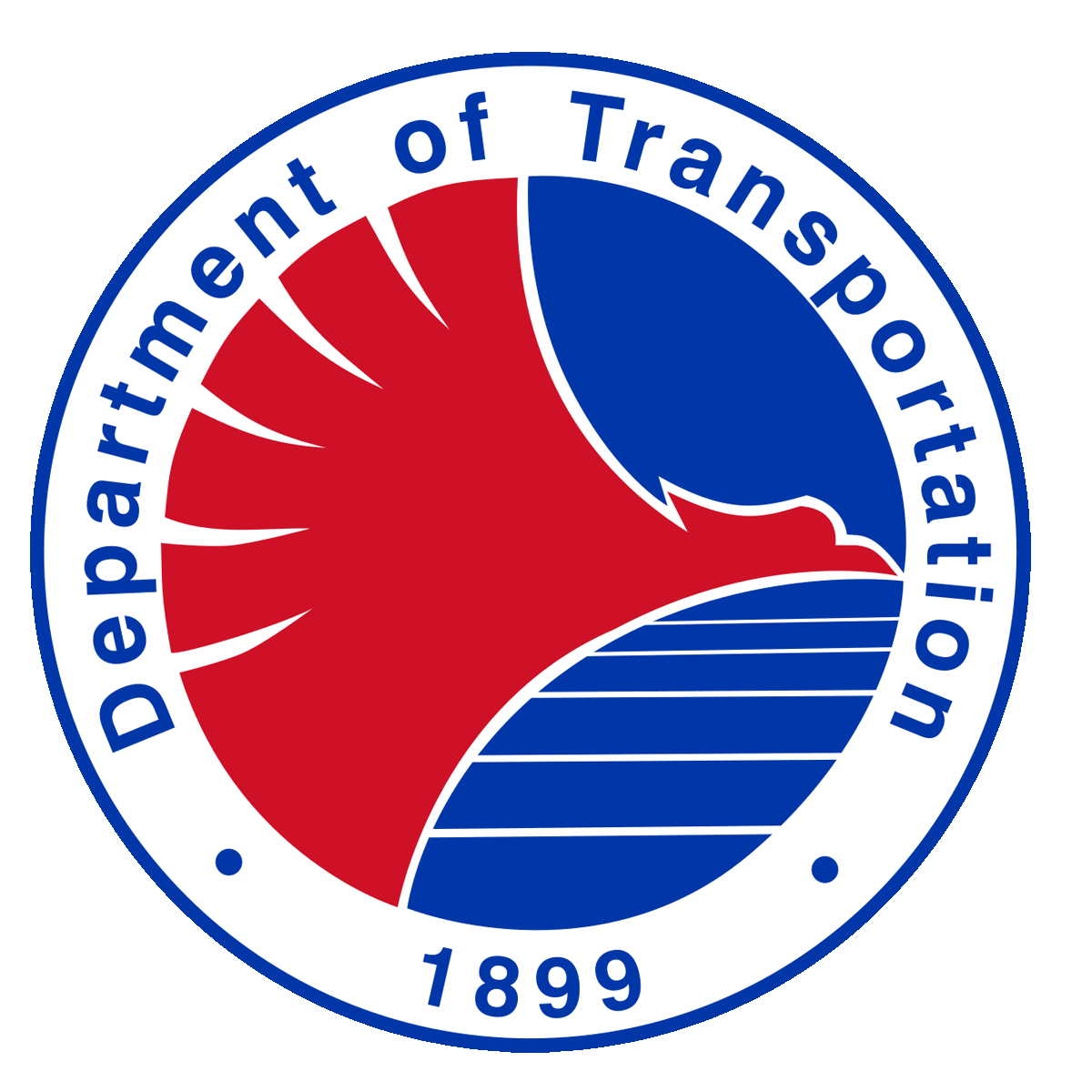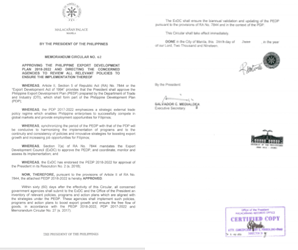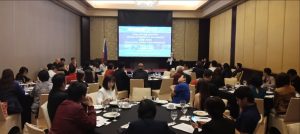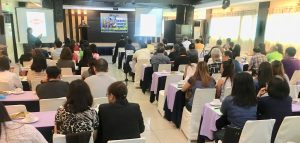 The Technical Education and Skills Development Authority (TESDA) gears up to adapt the “new normal” after the COVID-19 pandemic through its “OPLAN TESDA ABOT LAHAT – TVET towards the New Normal” Operational Plan. In continuous support to the Philippine Export Development Plan 2018-2022, as directed by Memorandum Circular No. 27, TESDA continue to oversee policies on the prioritization and implementation of technical vocational education and training (TVET) amidst the Covid-19 pandemic.
The Technical Education and Skills Development Authority (TESDA) gears up to adapt the “new normal” after the COVID-19 pandemic through its “OPLAN TESDA ABOT LAHAT – TVET towards the New Normal” Operational Plan. In continuous support to the Philippine Export Development Plan 2018-2022, as directed by Memorandum Circular No. 27, TESDA continue to oversee policies on the prioritization and implementation of technical vocational education and training (TVET) amidst the Covid-19 pandemic.
The Operational Plan aims to come up with relevant policies and programs to help society adjust to the new normal by introducing flexible & technology-based TVET arrangements, prioritizing agribusiness courses, and reassessing & adjusting TESDA’s systems responsive to future crises.
Priority sectors were also identified by TESDA in the Plan, namely: Agriculture, Health, ICT and Construction.
Moreover, the said Plan contains the following three (3) phases:
Phase I: Survival- involves the immediate response of TESDA during the crisis, focusing on reducing possible transmission of the disease, ensuring safety and security;
Phase II: Transitional or the transition period which provides for the TESDA’s action plans, programs and activities during the modified community quarantine as the country transitions to the “new normal.” and;
Phase III: Structural that involves the regular implementation of all programs under the “new normal” condition. PKC

 Amid the global health crisis brought by the COVID-19, the Philippine Government agencies continue to support the export industry as they continue to implement their existing programs in assistance for the Micro, Small, Medium Enterprises (MSMEs).
Amid the global health crisis brought by the COVID-19, the Philippine Government agencies continue to support the export industry as they continue to implement their existing programs in assistance for the Micro, Small, Medium Enterprises (MSMEs). “The services export is continuously growing, thus, total exports are projected to increase in single digit percentage.” Export Development Council (EDC) Executive Director Senen M. Perlada reported during the EDC Meeting last 06 February 2020.
“The services export is continuously growing, thus, total exports are projected to increase in single digit percentage.” Export Development Council (EDC) Executive Director Senen M. Perlada reported during the EDC Meeting last 06 February 2020. The Department of Trade and Industry (DTI) and Department of Agriculture (DA) show strong support to boost export of agribased products with high global demand. Secretary William Dar of the DA during the Export Development Council (EDC) meeting acknowledged that partnership between DA and DTI is significant in order to supply the demand of export market and to develop other potential crops for export.
The Department of Trade and Industry (DTI) and Department of Agriculture (DA) show strong support to boost export of agribased products with high global demand. Secretary William Dar of the DA during the Export Development Council (EDC) meeting acknowledged that partnership between DA and DTI is significant in order to supply the demand of export market and to develop other potential crops for export.
 In a Presidential Memorandum Circular (MC) No. 62 approving the Philippine Export Development Plan (PEDP) 2018-2022, concerned government agencies are mandated to implement their respective programs, activities and projects (PAPs) relevant to the PEDP.
In a Presidential Memorandum Circular (MC) No. 62 approving the Philippine Export Development Plan (PEDP) 2018-2022, concerned government agencies are mandated to implement their respective programs, activities and projects (PAPs) relevant to the PEDP.
 The Department of Trade and Industry-Export Marketing Bureau (DTI-EMB) and the Export Development Council (EDC) will hold a series of Stakeholders Engagements on the Philippine Export Development Plan (PEDP) 2018-2022 in Regions. It aims to present the PEDP 2018-2022 and solicit commitments among stakeholders to implement the Plan. The first Stakeholders Engagement was conducted in General Santos City and Koronadal City for Region 12 last July 25-26, 2018.
The Department of Trade and Industry-Export Marketing Bureau (DTI-EMB) and the Export Development Council (EDC) will hold a series of Stakeholders Engagements on the Philippine Export Development Plan (PEDP) 2018-2022 in Regions. It aims to present the PEDP 2018-2022 and solicit commitments among stakeholders to implement the Plan. The first Stakeholders Engagement was conducted in General Santos City and Koronadal City for Region 12 last July 25-26, 2018.